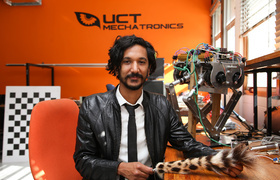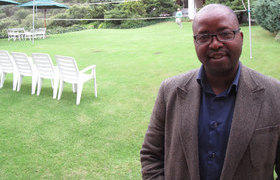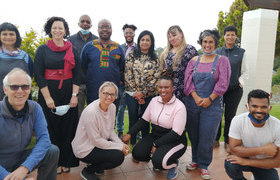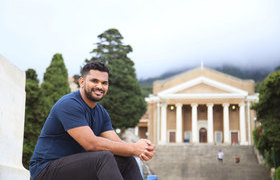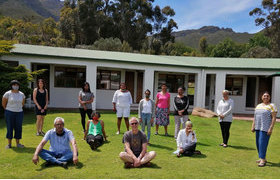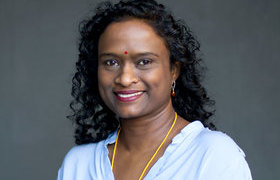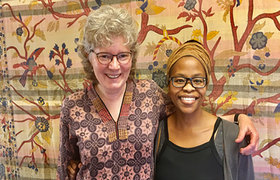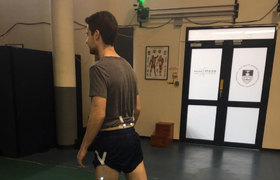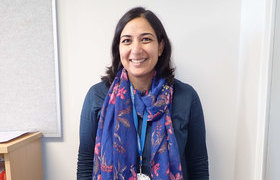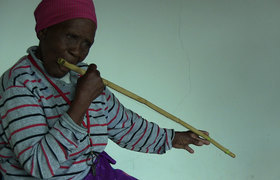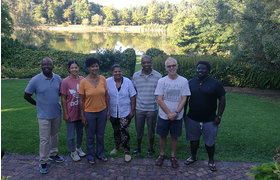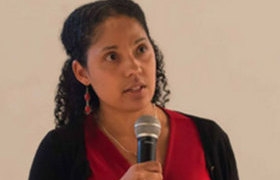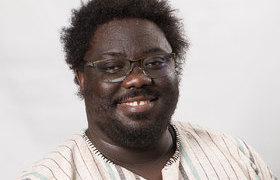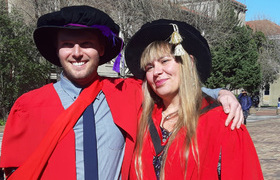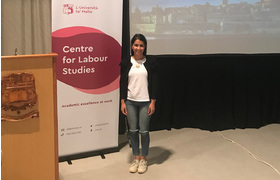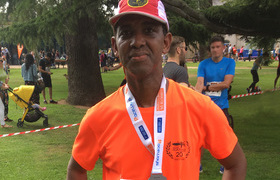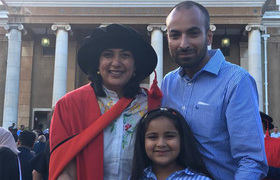Elaine Govender-Opitz – member, Future Professors Programme
31 March 2020 | Story Supplied. Photo Supplied. Read time 4 min.
Elaine Govender-Opitz is a lecturer in the Department of Chemical Engineering in the Faculty of Engineering & the Built Environment. She was recently selected to be a member of the Future Professors Programme (FPP), a national academic staff development initiative of the Department of Higher Education and Training.
“I spent my childhood running around in the dirt and through sugar cane fields, climbing mango trees and helping my grandmother in the garden of her small farm in Esenembe, northern KwaZulu-Natal,” Govender-Opitz recalled. “We lived in a little valley and from the top of the road leading home, I could see all the way to the sea on the Dolphin Coast.”
Early life
When she was a little girl, she said, she was proud to announce that both her mother and father had 10 siblings each and that she had about 36 first cousins on her mother’s side of the family. “As I grew older, I realised that this wasn’t necessarily a good thing as it strained the family resources. Now, I have my son and I’m in awe of my grandmother who raised most of her children as a single mum. She always reminded me of one of those towering trees with wide branches that only allowed in random shards of light.”
Govender-Opitz is the eldest of three. Growing up, both her parents worked and so she had an important role to play in cleaning the house and looking after her siblings. On weekends she spent more time outside with her father than inside around the stove.
“I have lots of memories of holding out the torch while my father tinkered with something under the bonnet of his various Nissan 1400 bakkies,” she fondly recalled.
“I got heaps of scolding because I could never keep my attention on the task. I remember climbing up on the roof to fix tiles, climbing trees to cut down loose branches and fixing electrical appliances. This could be why I chose to be an engineer, or it might have happened much earlier when I carefully took apart my mother’s very expensive watch.”
Further studies
Due to financial reasons, Govender-Opitz went to what was then called the Durban University of Technology. “I enjoyed technology and spent my vacations working in the labs at Tongaat Hulett Sugar. When I finished my degree, I spent three years as an in-service trainee at BHP Billiton’s research facility in Randburg. While there, I worked in the hydrometallurgy division – ultimately training to be a metallurgist.”
BHP Billiton began a scholarship programme to grow their capacity. Although her intention was to complete her BTech, the conditions of the scholarship provided for undergraduate study at university. It was a tough decision to go from the financial independence of having a salary to becoming a student again, she said. However, it was an opportunity Govender-Opitz could not ignore. So, she packed all her belongings into her very own 1400 bakkie and came to UCT – and stayed.
UCT journey
She completed her undergraduate studies in the Department of Chemical Engineering, while taking every opportunity to work in the mineral leaching research labs during vacations. She was fortunate to have BHP Billiton sponsor her postgraduate studies at the Centre for Bioprocess Engineering Research (CeBER) under the supervision of Professor Sue Harrison, who has served as her supervisor and research host throughout her career in academia. Govender-Opitz’s research project was primarily a fundamental one, focusing on understanding the principles that govern microbial growth and colonisation within heap bioleaching systems.
“As our mineral resources are depleted, we will move to metal extraction technologies with more efficient consumption of raw minerals and resource use. Mineral bioleaching optimises the natural interaction between microbes found in mineral deposits and the leaching agents to extract metal into solution. It is considered a promising technology specifically for the treatment of lower grades of minerals that might otherwise end up being discarded in waste dumps.”
“I have an opportunity to use my technical expertise in a transdisciplinary research space working on global challenges.”
She is currently working to achieve the efficiency of mineral bioleaching systems and is focusing on elucidating the mechanisms that govern the mineral-microbe interactions. This work can also contribute to preventing and mitigating the pollution from mine waste streams.
“As a participant in the Future Professors Programme and the Next Generation Professoriate at UCT, I have an opportunity to use my technical expertise in a transdisciplinary research space working on global challenges,” she said.
“In future projects, I would like to expand my research to consider the social and environmental impact of mining activities in South Africa on land use and natural water resources. Specifically, the research focuses on understanding the impact of post-mining transformation strategies on the water-energy-food nexus.”
 This work is licensed under a Creative Commons Attribution-NoDerivatives 4.0 International License.
This work is licensed under a Creative Commons Attribution-NoDerivatives 4.0 International License.
Please view the republishing articles page for more information.
Next Generation Professoriate (NGP)
The Next Generation Professoriate (NGP) is a mid-career academic staff development and support programme. Funded by the vice-chancellor’s Strategic Funds, the NGP addresses demographic inequalities in the academic hierarchy. The goal is to help members become associate and full professors.
The NGP was officially launched in September 2015. By the end of 2018, four of its members had been promoted to full professor and a further 14 had reached the rank of associate professor.
The programme is led by Dr Robert Morrell, who has over 35 years of academic experience in South African universities. He has a B1-rating from the the National Research Foundation (NRF) and is an elected member of the Academy of Sciences in South Africa.
Newsletters
In the news
